Hydride platform for house management
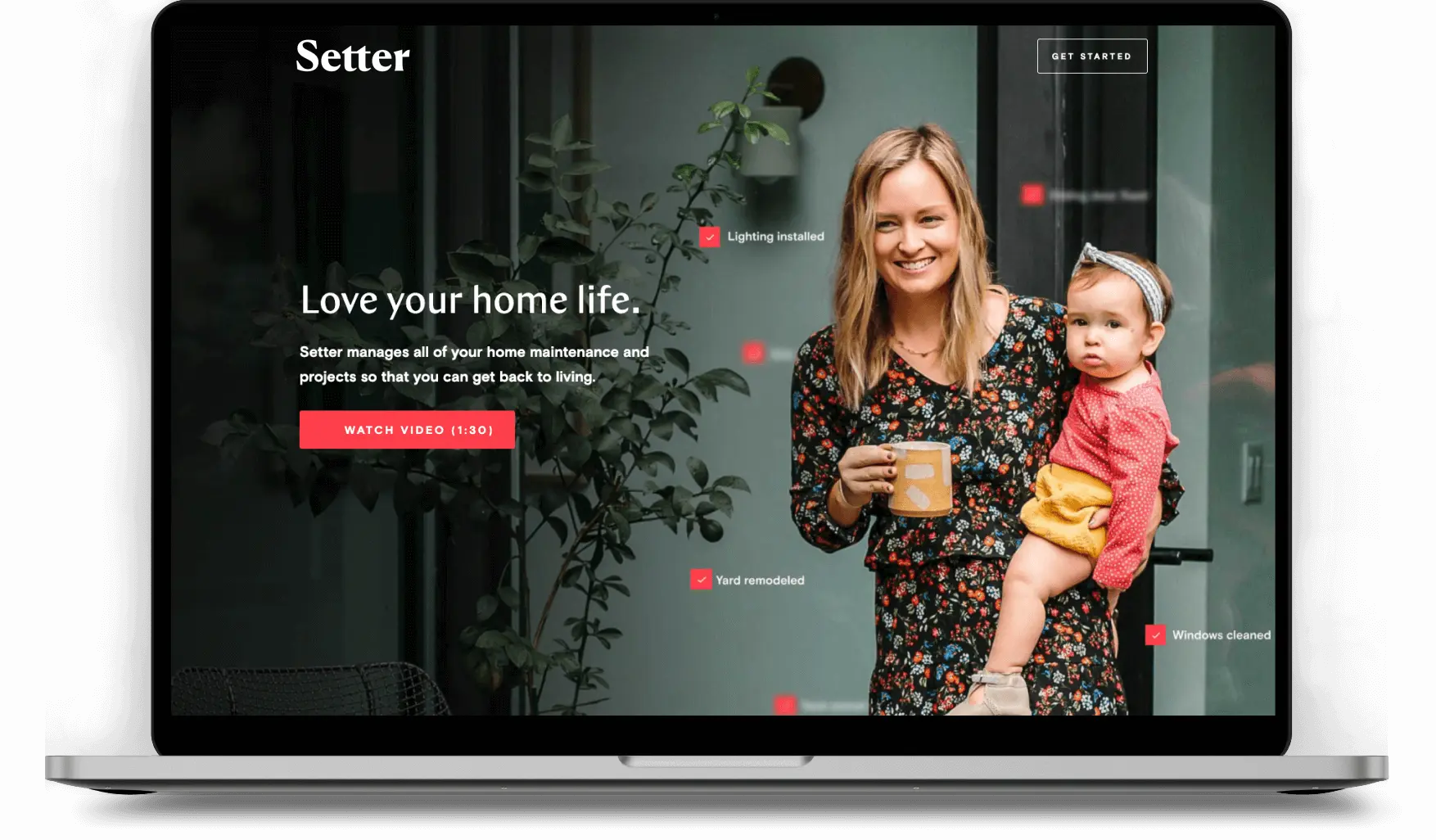

Background

Customer Request
Challenges & Solutions
Challenges
Absence of additional access channels to the platform
Setter entered the market as a mobile app for household servicing. Even in terms of high demand for PropTech services the company did not cover the whole potential market of users which reduced possibilities for the growth of the startup.
Increase of load on the platform
Multichannel interaction increased system load, reducing fault tolerance and user service rate. This could harm the Setter project's reputation and drive away part of the audience.
Technical servicing complexities of the startup
The platform, built on Rust, complicated scaling. Working with outdated code slowed Setter’s development due to complex architecture and lack of technical documentation.
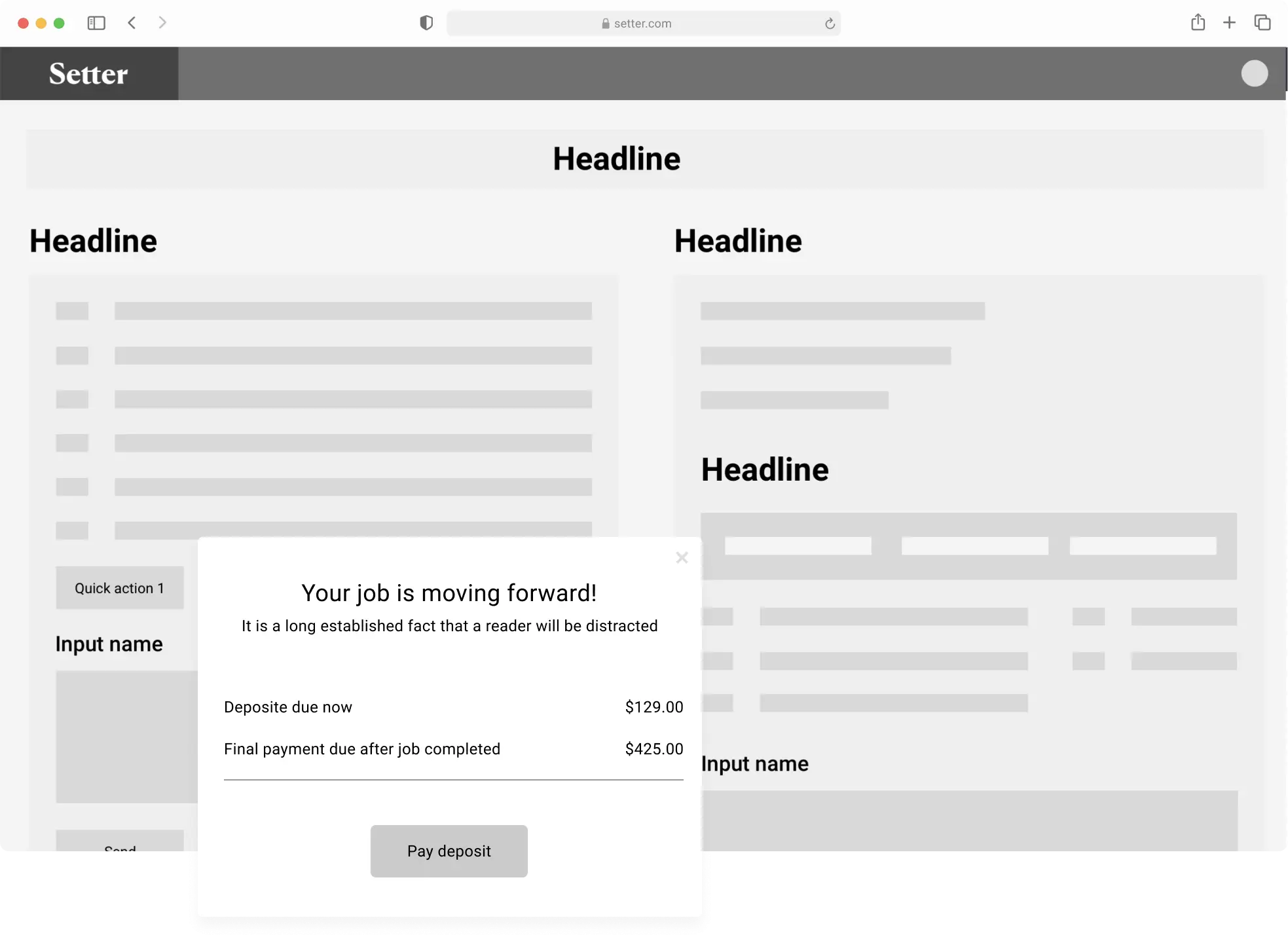
Solutions
Development of multichannel interaction system
FTL specialists created a landing page to promote the product and developed a web version for clients and masters. This multichannel strategy attracted 40% more users and expanded the company’s reach in the US and Canadian markets.
Migration of the platform to GoogleCloud
Transferring Setter to a new server and integrating GoogleCloudVision optimized platform performance, making it more responsive to client inquiries. This improved user experience and strengthened loyalty to the service.
Copying of the platform from Rust Legacy to Node
Upgrading the project's software to Node simplified service maintenance, improved documentation, and made refactoring easier. This enhanced platform control and provided more opportunities to introduce new features.
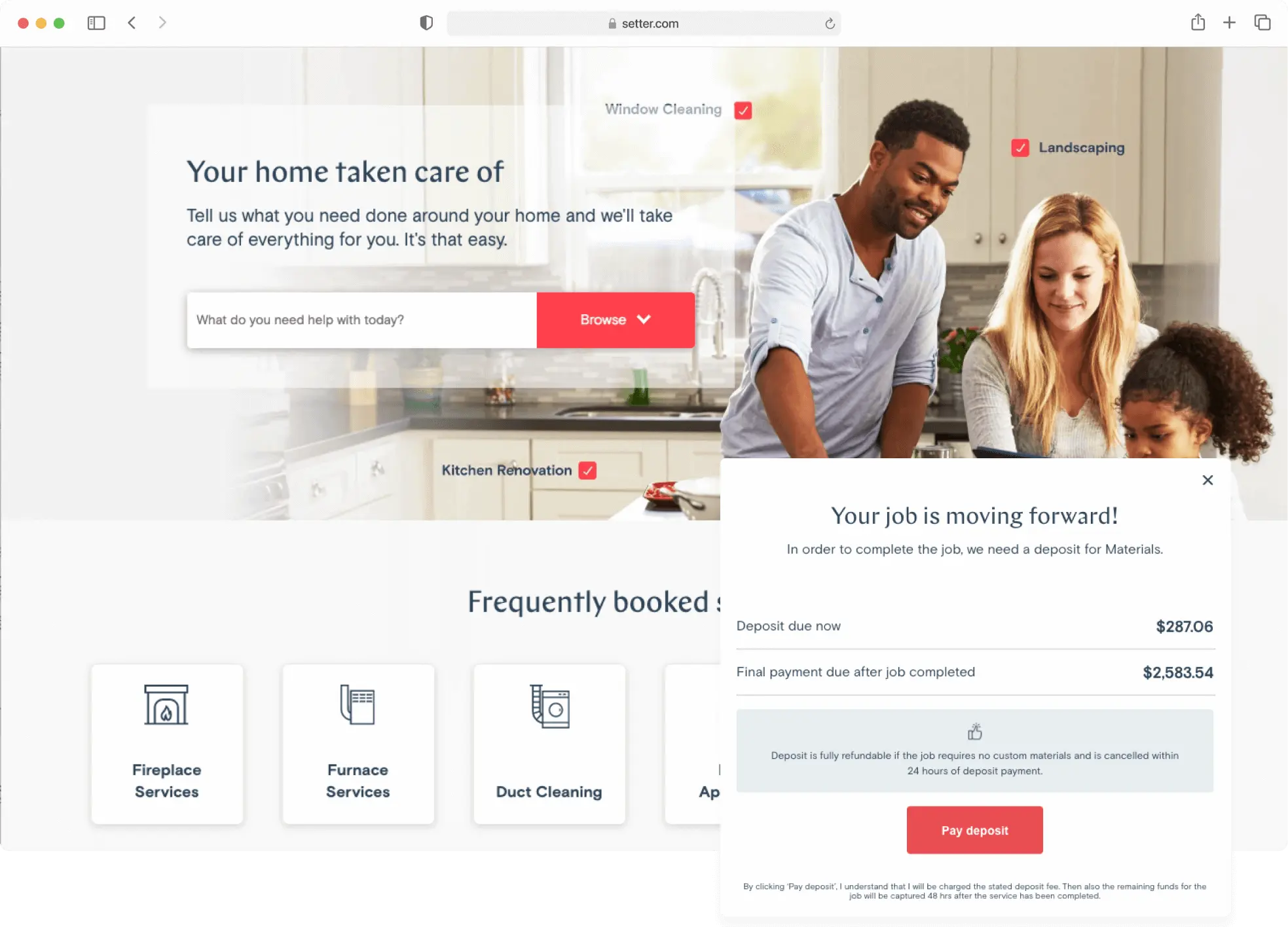

project facts

main features
Development of the unified platform management system
As a result of the implementation of the multichannel interaction strategy, the process of controlling and servicing users' inquiries gets complicated. FTL specialists developed a universal administration panel that permits monitoring users' queries quickly and conveniently 24/7. Setter managers could manage the priority of orders, working schedules, and service client requests faster. As a result, managers' load with routine work decreased, and the productivity of the startup team increased.
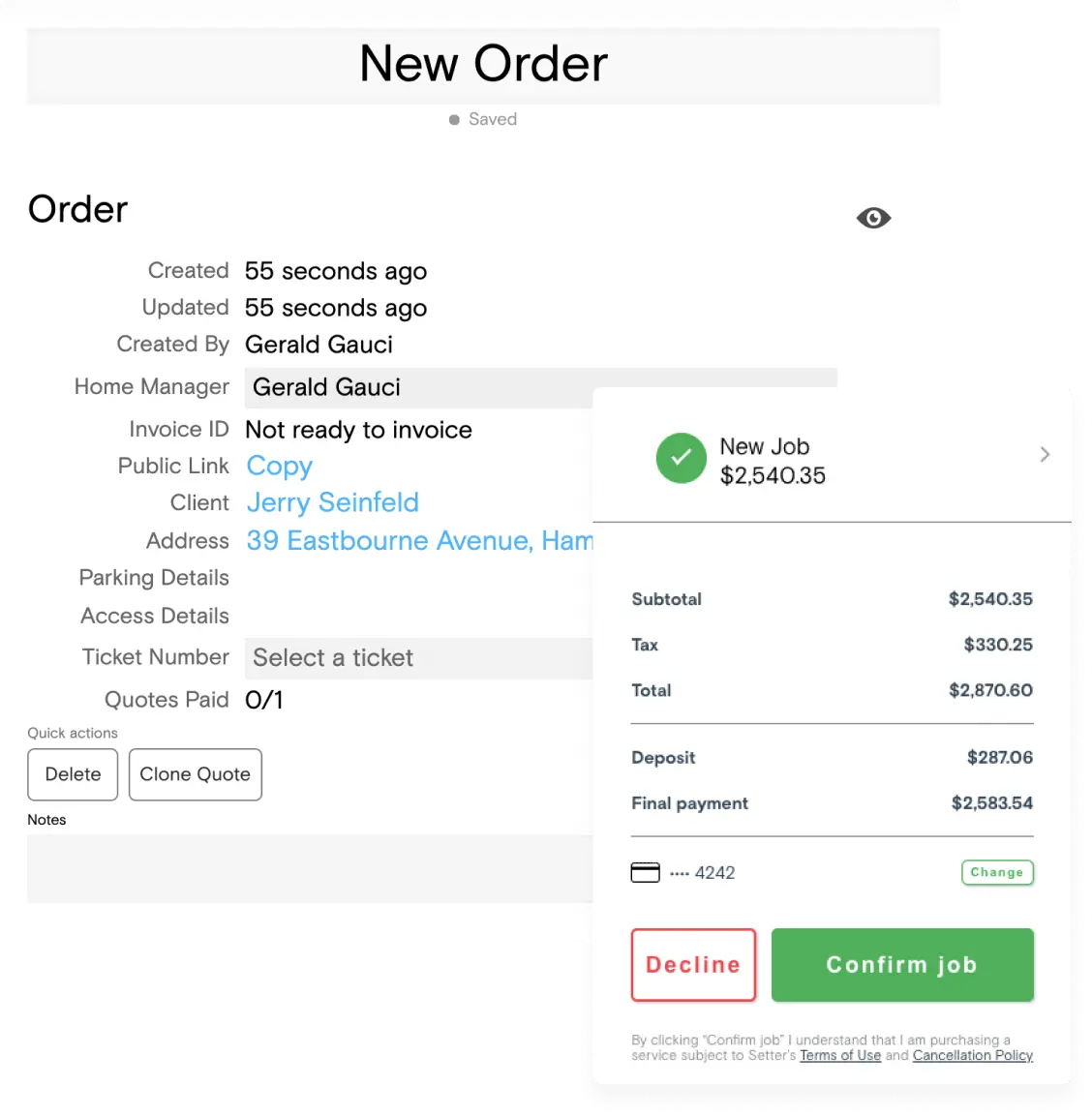
Functionality extension of client payment form
Setter includes more than 100 household repair and maintenance services; many of them require to carry out work with the purchase of construction materials or components. Earlier, the company had to purchase the required list of materials at its own expense, which was frozen in service until the completion of the order. The introduction of the deposit system into the payment form with the preliminary calculation of necessary costs for purchase and reservation of expenses on the service is a solution to the problem. It simplified the working process and saved large funds for the company.
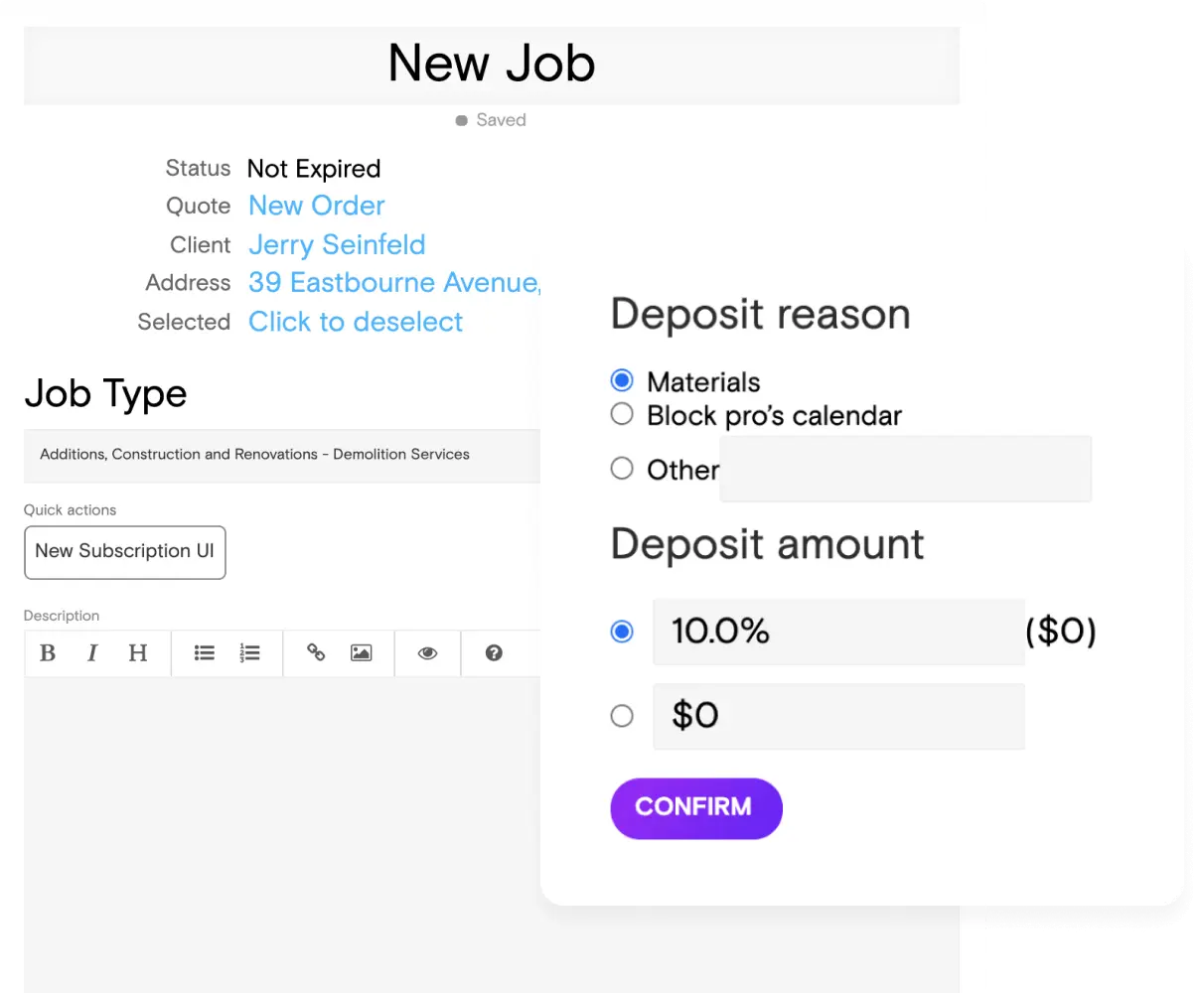
Personalization of the companys' services to geolocation filters
As the startup operates simultaneously in 2 countries, earlier, the Setter offered services for all regions, ignoring the individual needs of households. It complicated the choice of necessary tasks and users could be confused while using the app. FTL specialists developed the service selection algorithm based on the user's IP. Due to the integrated option, a user from the USA and Canada, first of all, gets offers, considering geolocation, household problems typical for climate, and actual user inquiries of a specific location. As a result, services were personalized without the development of separate platforms for every country.
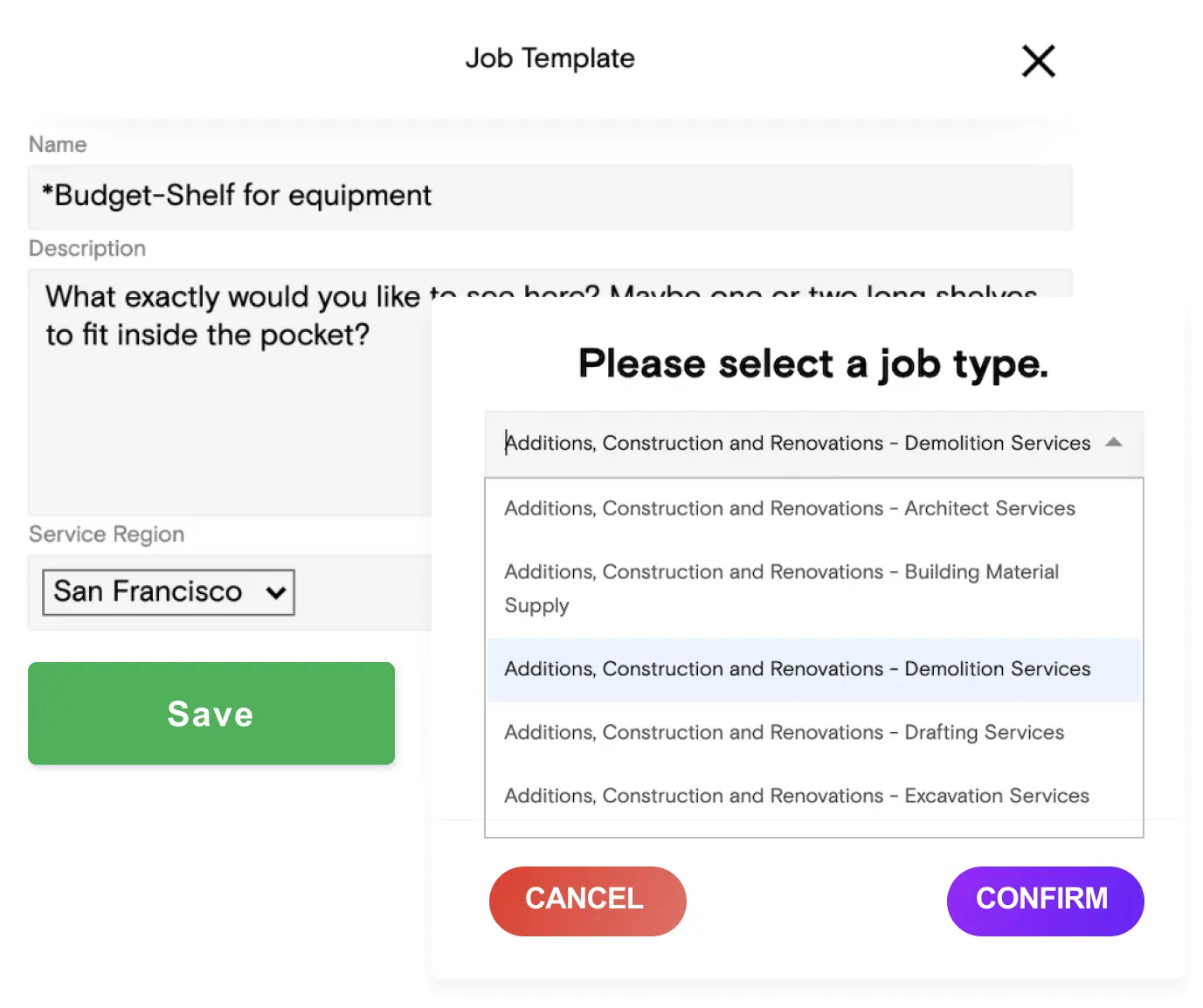

Technologies used
